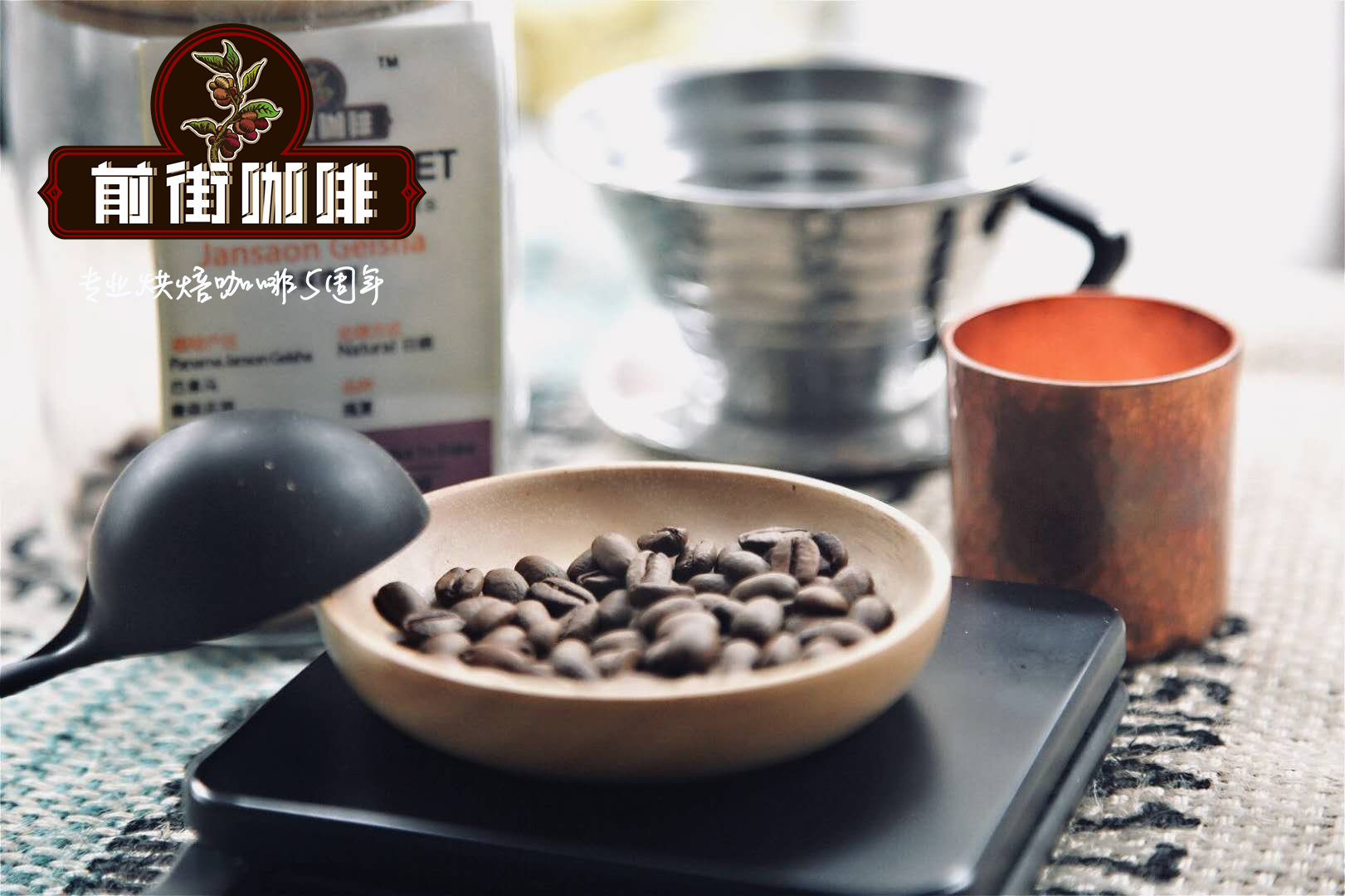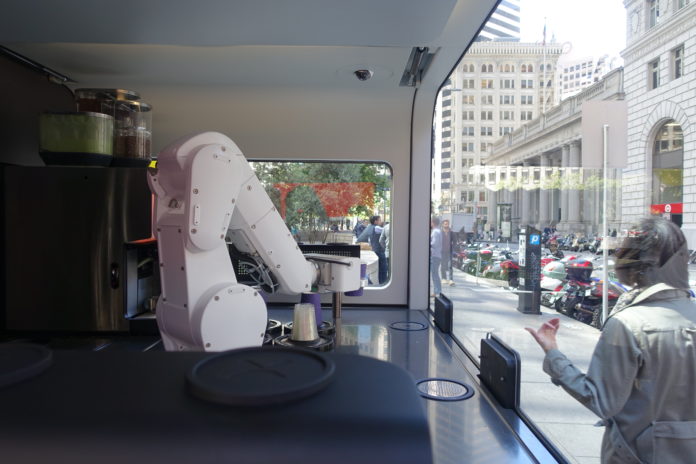Domestic coffee beans are sold cheaply: 30 yuan can buy 2 kilograms of raw beans and Yunnan coffee has a worrying future.

Professional coffee knowledge exchange more coffee bean information please follow the coffee workshop (Wechat official account cafe_style)
The good market of 30 yuan for a cup of coffee did not extend to the coffee producing areas. In Yunnan, you can buy two kilos of raw coffee at this price. When some farmers were overwhelmed and turned to grow mangoes, a small number of people turned their attention to the cultivation and production of boutique coffee. However, boutique coffee is still a "minority" in Yunnan and in China.
This summer, it is hotter than the weather, when counting coffee. On the one hand, small blue cup and Starbucks fight, "besieged" Starbucks remarks also occur from time to time; on the other hand, fast consumer companies have launched their own coffee drinks.
However, this heat does not extend to the upper reaches of the coffee industry chain-Yunnan, the largest coffee producing area in China. To make matters worse, some farmers there have fallen into the dilemma of losing money.
At the end of May, the Yunnan Coffee Industry Association (hereinafter referred to as the Coffee Association) came forward to appeal that they hoped that domestic enterprises such as Luckin Coffee and Lian Coffee would participate in the purchase of Yunnan coffee and that every cup of Yunnan coffee would help Yunnan farmers make a profit of 0.30 yuan.
According to the information disclosed by the Coffee Association, during the 2017 muri 2018 coffee harvest season, Yunnan coffee was affected by the low price of international coffee futures, and the price of raw beans basically hovered at 15 yuan per kilogram, which was close to the cost price for farmers to grow coffee, and some farmers lost money.
In fact, it is not uncommon for the purchase price to be inverted from the cost price.
"it was upside down a long time ago, ten years ago. It's just that there was a wave of coffee fever in Yunnan before and after 2011, just like the tuyere of 'Internet +' now, and somewhat similar to the current IP and celebrity effect. With Starbucks' entry into Yunnan and the successful experience of Pu'er tea, everyone wants to apply it to coffee. Of course, the result is that there is no result. " Zhang Yishi, who claims to know something about agriculture and likes coffee, told New Financial Watch.
As a native of Yunnan, Zhang Yi-Shi also had the idea of using some of his own land for coffee research and development in his early years, but because of his experience of traveling around the world, he saw too much good coffee and a more "real" side of Yunnan farmers, so he chose to give up.
In his view, coffee cultivation in many parts of Yunnan is too extensive. After shelling the coffee beans with a relatively backward machine, they packed them in sacks and waited for the coffee factory to collect them. "Coffee beans are fermented in sacks."
At that time, he was invited by a township in a certain county to do coffee planting training. In the end, he had to brush his teeth sooner or later, and the livestock were far away from life, especially the water collection land. In addition, coffee farmers, who do not have much "feelings" for coffee, are not very enthusiastic about growing coffee. If they do not make money, they will soon grow something else.
"the price of commercial beans (variety: Arabica) is at an all-time low. It is very difficult for farmers to deal with commercial beans. Many farmers hoard commercial beans and wait for prices to rise before selling them. In Lujiangba, Yunnan, on many plots with an elevation of 800,000m above sea level, more curry farmers have switched to fruit growers and mango trees. " This is what the Nordic Frog Coffee team saw in Yunnan coffee producing area in April this year.
This organization, which specializes in coffee cup testing and roasting in Beijing, is committed to training excellent cup testers and roasters, and has been dedicated to Yunnan coffee beans for five years.
"most of Yunnan's commercial beans are sold at futures or slightly lower prices than futures, and these densely planted, low-quality coffee beans account for the vast majority of Yunnan." Lxxxxxxxxxxxxxxxxxxxxxxxxxxxxxxxxxxxxxxxxxxxxxxxxxxxxxxxxxxxxxxxxxxxxxxxxxxxxxxxxxxxxxxxxxxxxxxxxxxxxxxxxxxxxxxxxxxxxxxxxxxxxxxxxxxbit coffee.
Coffee is the second largest commodity in the world after oil (New York Futures Exchange-Arabica; London Futures Exchange-Robusta). It ranks first in the single grain category and beverage category. Unfortunately, over the past three years, the futures price of Arabica coffee has continued to decline, while labor costs have been increasing year by year, and the viability of non-brand raw coffee beans is worrying.
In Ethiopia, all coffee trees are wild and can be harvested in the season without human intervention, and a person's daily wage is only about 10 yuan, he said. But in Yunnan, none of the young adults are willing to work for 150 yuan a day, and they have plenty of opportunities to work in the city. As a low-end production capacity, there is no advantage in cost.
Nestl é "carrying the pot"
Statistics show that in the past five years, China ranked ninth in Arabica coffee production, with a total output of 132000 tons. At the top of the list is Brazil, which has a capacity difference of more than ten times that of Brazil, which is the second largest producer of Robusta in the world.
"the output of Colombia ranks second in Arabica species in the world, and it is the most worthy object to pursue and learn from Yunnan coffee producing areas in China in terms of location. First of all, the average quality and average price of Colombian coffee are better than ours. Secondly, their production capacity is six times that of ours." Li Guanting, founder of Aizhe Coffee, told New Financial Watch that he, who has 8 years of experience in coffee production and international trade, has a deeper understanding of Yunnan coffee.
According to him, China's coffee producing areas are actually divided into three provinces-Yunnan Province, Hainan Province and Taiwan Province. Among them, Yunnan Province and Taiwan Province grow Arabica species, and Hainan Province is the main species of Robusta species. Yunnan Province accounts for more than 90% of the national output. In other words, Yunnan coffee can also be equated with Chinese coffee.
"although coffee cultivation in Yunnan has a 'history' of more than 100 years, the real industrialization is only 30 years, that is, from 1988 to the present, and in these 30 years, the cultivation and development of Pu'er coffee is almost the epitome of Chinese coffee. Nestle's planting and promotion has contributed." Li Guanting said.
Of course, Nestl é is not the only foreign company with a "role" in Yunnan coffee producing areas. Instant coffee companies such as Starbucks and Maxwell have made more or less contributions in Yunnan coffee producing areas.
"in the early days, it was good to bring enthusiasm to farmers and let people know about coffee, but it only met the needs of instant coffee manufacturers to grow some low-grade coffee. They send seeds to the farmers for planting and come back to harvest them later, not to mention whether the planting is good or not. If the manufacturers do not collect the seeds, the farmers will suffer. " The aforementioned industry insiders said.
As far as he knows, the number of commercial beans purchased by companies such as Nestl é and Starbucks in Yunnan has declined. Coupled with the continued decline in futures prices, it is difficult for commercial bean farmers to have a "good day".
Because of this, Nestl é, a company that has worked hard in Yunnan for many years, has been pushed to the opposite.
There is even a view that in the early years, there were very good coffee varieties in Yunnan, but with the arrival of Nestl é, coffee varieties with strong resistance to diseases and insect pests and high yield were widely promoted. In this way, while Yunnan coffee is moving towards industrialization, the production capacity of its boutique coffee beans is almost pitifully small.
There is a "conclusion" of success, failure and failure. Of course, Nestl é doesn't think so.
"Nestle has played a pioneering and leading role in the development of Yunnan coffee industry." Nestl é officials said in a reply to the New Financial Watch reporter. The company has even published the White Paper on Nestle's Coffee Development in Yunnan Province, in which officials said Nestl é gave a very detailed description of its role in Yunnan's coffee industry.
The bulk purchase of Nestl é has affected the "consideration" of Yunnan coffee in terms of species selection and grade, resulting in the view that Yunnan coffee, although its output is quite high and its quality is stable, cannot enter the "boutique" level and can only be used to make instant coffee. Nestle also holds a negative attitude.
In Nestle's view, on the contrary, it is precisely because Nestl é has persistently purchased coffee beans in Yunnan over the past 30 years that it has promoted and protected the local coffee growing industry, which has been highly recognized by the competent authorities, farmers, business partners and other relevant parties.
Auli is "supportive" of Nestle. In his view, the relatively difficult situation of the coffee industry in Yunnan is certainly not Nestl é 's fault. "the so-called factory of the world can be seen as a factory of blood and tears, or it can be seen as the only way for developing countries to rise. Different periods have different methods and strategies, and it was a win-win deal at the beginning. "
Positive transformation obviously, the coffee industry in Yunnan needs to change, so some people have turned their attention to high-quality coffee.
"this is something that starts from the root. From seed selection to cultivation, to demonstration planting, site selection, to picking, initial processing, fermentation, baking, and even what kind of beans are suitable for mocha pots and siphon pots. With such an impetuous social rhythm, I have no confidence in this. " Zhang Yishi said.
In his view, the intervention of many big foreign brands is good enough to make coffee known to most Chinese who only drink soy milk at breakfast. If you want a curry farmer who hasn't had a cup of coffee to grow good coffee. "you can imagine the difficulty. If you want to make coffee well in Yunnan, you may still need to push it and start all over again."
At present, when the coffee industry in Yunnan is facing difficulties, there is no lack of people trying to find a new way to develop the coffee industry in Yunnan.
Auri is a coffee roaster who sells coffee beans from all over the world. But as purchasers, previously, they had no "say" over coffee beans and could only choose existing products. But starting in 2015, he chose to work with a new generation of Yunnan farmers to cultivate Yunnan's producing areas, making his own customized batches every year, reflecting the needs of consumers to upstream growers and trying to be a good connector.
Working with him should be regarded as one of the typical representatives of the new generation of farmers, Li Shaoquan, a high altitude project and coffee grower.
"I am a coffee grower. In popular terms, I am a farmer. Yunnan coffee is now in a period of drastic change. There are two parts of planting production, traditional bulk trade raw bean production, to the direction of boutique coffee production. " Li Shaoquan's introduction to the new financial observation reporter is simple and direct.
At that time, he came into contact with fine coffee by chance and vaguely felt that it was an opportunity, so he decided to go back to his hometown to make coffee and grow it.
"I came back to grow and produce fine coffee. after analysis, the continuous development of our country is bound to lead to a continuous rise in the price of production resources. we have come to the conclusion that without taking the route of high-quality coffee, Yunnan coffee will soon face the desperate situation of inverted price and cost." Li Shaoquan said.
A decision that looks cool often means giving more than it seems, and it's not just real money.
Among the original bulk commercial bean planting plots, he selected a plot in which the planting environment is favorable for experimental observation, which is used as the experimental planting area for fine coffee-- the total area is about 260 mu, the actual planting area is 100 mu, and the original vegetation is retained at the top of the mountain. At the same time, about 650 mu of planting plots are used for large-scale production and use of experimental results.
"this choice means automatically reducing production, while reducing production means automatically giving up benefits, and as far as starting a business is concerned, it means it is very difficult to survive." The aforementioned industry insiders said.
The good news is that after four years of efforts, they have mastered certain methods and skills, focused on the design and improvement of refining methods for fresh coffee fruits, and began to carry out biotechnology research and application related to the production of raw coffee beans in 2015. it was used in practical production on a large scale in 2018 and achieved good results. after the product was released, it was highly appraised in the exhibition and a small number of consumers.
Li Shaoquan said that the prices of their first products were out of the binding with futures prices and out of the predicament of inverted prices and costs. Although it is very painful in the process of transformation, it has also received the help of many "fellow travelers" in this process, which has enabled them to successfully realize the transformation of high-quality coffee cultivation.
The Nordic frog in the previous article was also disappointed when he first went to Yunnan to look for good coffee beans. But over the past five years, they have studied together with farmers and even refined the treatment of coffee beans, and slowly gained a lot.
Looking back over the past five years, its founder said, "Yunnan coffee is not that good or so bad, but it has great potential."
Important Notice :
前街咖啡 FrontStreet Coffee has moved to new addredd:
FrontStreet Coffee Address: 315,Donghua East Road,GuangZhou
Tel:020 38364473
- Prev

Call yourself the "apple" of the coffee world! Disdain for Greybox at the top of the chain to be the first Chinese boutique coffee.
Professional coffee knowledge exchange more coffee bean information Please follow the coffee workshop (Wechat official account cafe_style) according to public data, GREYBOX COFFEE was founded to become the first boutique coffee in China within one year, to become the top three in the world in 3-5, and to become the number one boutique coffee brand in the world in 5-10. Curiosity Daily reported on June 21st.
- Next

Cafe X second generation robot coffee shop unveiled in San Francisco, USA! You will wave after making coffee.
Professional coffee knowledge exchange more coffee bean information please follow the coffee workshop (Wechat official account cafe_style) remember the robot coffee shop Cafe X introduced earlier? Recently, the second generation of robot coffee kiosk "Robotic Coffeebar2.0" has been launched on the streets of downtown San Francisco. unlike the first generation, the new coffee shop will also buy coffee.
Related
- Can lightly roasted coffee beans be used to extract espresso? How finely should you grind high-quality coffee beans to make Italian latte?
- What is the difference between the world's top rose summer coffee and Yejia Shefi? What are the flavor characteristics of Yega Shefi coffee and Panama rose summer?
- The ceremony is full! Starbucks starts to cut the ribbon at a complimentary coffee station?!
- A whole Michelin meal?! Lucky launches the new "Small Butter Apple Crispy Latte"
- Three tips for adjusting espresso on rainy days! Quickly find the right water temperature, powder, and grinding ratio for espresso!
- How much hot water does it take to brew hanging ear coffee? How does it taste best? Can hot water from the water dispenser be used to make ear drip coffee?
- What grade does Jamaica Blue Mountain No. 1 coffee belong to and how to drink it better? What is the highest grade of Blue Mountain coffee for coffee aristocrats?
- What are the flavor characteristics of the world-famous coffee Blue Mountain No. 1 Golden Mantelin? What are the characteristics of deep-roasted bitter coffee?
- Can I make coffee a second time in an Italian hand-brewed mocha pot? Why can't coffee be brewed several times like tea leaves?
- Hand-brewed coffee flows with a knife and a tornado. How to brew it? What is the proportion of grinding water and water temperature divided into?

